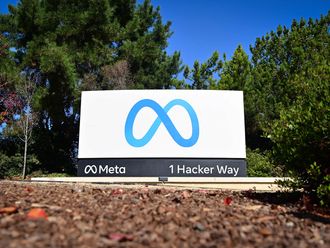Dubai: Industry experts say there are wider opportunities amid risk, despite many people’s fear of automation stealing jobs.
“I think technology disruption has been killing jobs for hundreds of years and technology has been creating jobs and this is not something new. It has happened before,” David Suarez, people and organisation leader at PwC, said at the sixth edition of Step conference 2018, the largest experiential tech festival in the Middle East.
The phase of adoption of technology is 20 times faster than 500 years ago, he said and added that computers have been doing things that they have not done before. They have been diagnosing illnesses, can write an entire magazine article and drive autonomously. This is something “unique”.
For the first time in 15 years, he said that studies have shown that productivity keeps on increasing but employment keeps flat.
“That basically means we are not able to keep up with technology evolution. In that, it creates a lot of threat but there is also a huge amount of opportunity with it. It is not about job replacement, it is more about jobs augmentation.
“Many companies are not yet ready for automation apart from the companies that are born digital natives. In the Middle East, the awareness is definitely there. The person to machine interface is getting blurred and we need people to work with them. I wouldn’t be surprised if we got robots as colleagues in the future,” he said.
According to a study PwC did last year in the US, 38 per cent of jobs will be replaced by automation by 2030.
“Let us face that there is an issue and we have to deal with it. The other element is the opportunity. People can be fearful of it but the opportunity is huge. In the study, we also found that 38 per cent of our respondents were hopeful about the future supposed to 18 per cent of those who are fearful,” he said.
IQ Sayed, technologist at Careem, said that there is basically no industry that is new to disruption. Anticipating disruption is extremely important. For a start-up like Careem, he said that automation is not really a choice but rather an imperative.
“The pace at which we are growing just catering to our customers and captains [drivers] is just not possible for us to hire for the different roles we have at Careem. So automation is essential for us and for a lot of start-ups and not just a choice,” he said.
“We always feel that automation movement or revolution is not something new but it has always been there, it goes as far as the industrial revolution. With the computing evolution, the pace of things has changed. Things are changing a lot faster but eventually it comes down to adapting, learning and growing,” he said.
Sayed said that the valuable skills in the future will be software engineering, programmers, data scientist, AI and machine learning, customer care and managing complexity.
Leadership skills are difficult to automate, he said and added that leadership involves working with people, motivating people, setting a vision, explaining that vision and working out plans for that vision.
“The modern organisations are very complex. We need people to have the ability to look at the complexity, find patterns and apply those patterns across the board,” he said.
When asked what organisations need to do today to prepare for the future, Suarez said: “The first thing organisations should do is realise that it is not an incremental change. At PWC, we have been studying about the future of work for the last three years. It is something we need to study constantly as everything is changing so quickly.”
“This is the first time we are running into a situation like this. We need to do something very different. Three things will play key roles in future — talent attraction, talent development and talent engagement,” he said.
The PwC study also finds that 74 per cent of the participants were upbeat about reskilling and upskilling to tackle technology’s impact on employment.











